 Other World Austin and its horror counterpart Under Worlds Austin offered strong material during its 2019 festival, but the standout was a small Canadian horror film called Dead Dicks, which told the story of a mentally ill young man who discovers what appears to be his own dead body after a suicide attempt. When his sister arrives at his apartment to check on him, they find more dead versions of him as well as a strange hole in his bedroom wall. Dead Dicks covers tough subject matter with an honest portrayal of mental illness and depression, and it captivated me from its opening frame. I had the opportunity to speak with directors Chris Bavota and his wife Lee Paula Springer, both of whom also wrote the screenplay, and actor Heston Horwin, who plays the eponymous Richard. Over delicious Indian food (and too much beer on the part of the interviewer), we chatted about their careers, the making of Dead Dicks, and what is in store for the filmmakers in the future. Derek Austin Johnson: Tell me a little about your work before Dead Dicks. Chris Bavota: I decided, for whatever reason, to go to the Chattanooga Film Festival. I didn’t have a film playing, but I had friends who had their films playing, and so Lee and I decided, like, if this is going to be the career we take, then we really need to start traveling, networking, and so I was going to go to this festival. And, by chance, Heston (Horton) was there with Rocksteady Row. We ended up hanging out because his film was distributed by the same company that distributed my friend’s film. When I got back to Montreal, I said to Lee, “Look, we’re writing this script, and I really think this guy I met would be right for this role.” So I described him, and then we watched Rocksteady Row together, and I was like, yeah, he could be this kind of funny, horrible character that we were writing. When that script was finished, I contacted [Heston] on Facebook--we had been friendly on Facebook since after we met--and said, “I don’t know if you’d be willing to read this script, but there’s a character in it I think you’d really be good for.” And he was like, “Yeah, send it over!” And we sent it, and he said, “I would totally love to be this character. What do you need from me?” We said that if we could get a letter of intent from you just saying that you’d be in the film, we could start casting it and start trying to raise some money. He sent us the letter, and after passing around the script we got some positive response on it, we spent a year and a half trying to raise the budget. We got a bit of money, and we were suddenly at TIFF (the Toronto International Film Festival) in Toronto, and we had these meetings set up. Heston had us hooked up an agent from UTA, and we thought, this is going to happen. This film is coming together. And after we leave TIFF and we’re driving back to Montreal, a series of phone calls told us all of our dreams were falling apart. It was just one after the other, all in the car ride driving for five hours to Montreal, nothing but negativity coming our way. Lee and I were like, “What are we going to do? This film is dead.” We decided we could be sad for this car ride, but when we got back to Montreal we had to come up with a plan because we can’t go another year without making a movie. When we got back to Montreal, I said that I have this idea that I’ve had in my head for a while, and I think we can do it for no money. I sat Lee down and our producer Albert, and I pitched them the idea. Lee said we should do a short film, but I felt we had to do a feature because there were too many short films and I didn’t think we had enough money to make a short film that would really stand out. We have to make a feature, because even if we make a feature for the same amount of money, at least it’s a feature. It took a bit of time to convince them, and then I started writing Dead Dicks and decided to write it for Heston. I said, “Let’s write it for him, and we’ll send it to him, and if he agrees to do it, I’ll think he’ll do an amazing job. So we wrote it, and sent it to him, and he responded, “I’ll do anything you guys want. If you guys are really going to make this, I’ll come out to Montreal and I’ll live in your basement. Let’s just make this happen.” And then we raised the budget pretty quick. We raised twenty-five grand from friends and family, and then we were like, oh my god, this might actually happen. And we had to figure out how to get Heston here. Heston said, “I’m really sorry, but you have to talk to my manager.” Heston Horton: (laughs) Yeah, manager was like, “Pump the brakes. What’s happening? You can’t make your own deals for free.” CB: But it all worked out. His manager was amazing, and super helpful, and then he pretty much did that. He flew out, lived in our basement, and we made this movie in ten days. It just flew by. We weren’t too sure how it was going to turn out or what was going to happen. Lee and I had never made a film together, but we’d made commercials and music videos. Lee Paula Springer: We’d written together, but we’d never directed together. CB: We’d never directed together, and I’d only done one short film, though I’d produced and written for years, so coming out the other side of it, I guess we weren’t really sure what we were making or how it was going to be received. The fact that we’re [at Other Worlds Austin] now is just shocking, overwhelming, and amazing. DAJ: I love the premise behind Dead Dicks. It’s one of the things that sold me on the movie, and why I wanted to see it immediately. Can you talk a little bit about its origin? LPS: Well, it’s like Chris said, snatching victory from the jaws of defeat, or just getting to a place that was, like, if we don’t make something, we’re never really going to do it. So we decided to do it. Chris had had this idea that was just a grain of an idea: what if a man was pooped out of a wall? And I asked, “How is that a movie?” (laughs) And when this happened and we were decided that, if we financed it with friends and family, and raised whatever we can, we need to write really small, think of it as a chamber piece, and wondered how we were going to do it. Initially, I think Chris’s idea was that it was going to be two male roommates, but it was hard to connect, we just wondered why we cared. And then we asked, “What if it’s siblings, a brother and a sister?” And I thought the dynamic of a younger sister in a parentified kind of role…it was familiar to me, and all of the sudden we could access the characters, if that makes sense. And then it was a blur. We trashed the first draft real quick, then talked it out and wrote another draft, and had acting student read it, which was really helpful. CB: The mental health aspect just seemed to be surrounding us in our personal lives. So many things were happening with friends that shocked us and made us realize that we didn’t really talk about this kind of stuff, so it became a subject that we talked about a lot. LPS: But that wasn’t the intention. We were never really saying we were going to write a movie about mental health. It was just really us that came out. DAJ: That leads into my next question, because one of the things that really wowed me about this particular movie was that it was a commentary on mental illness. It’s a commentary on suicide. And the thing I really like about the movie is its matter-of-fact approach with its subject matter. It treats it very honestly. What kind of research did you find yourself conducting to get those details right? How much of this was personal? LPS: Highly personal. I grew up in an environment with a very unusual upbringing, to put it mildly. So I’ve been on both sides, to be the sort of Becca (the sister in Dead Dicks), and I myself have struggled with depression for many years, on and off. In terms of, how does one deal when one is through it, and how does one deal with the shame that comes with it when you realize how, when you pull yourself out of it, the damage…I didn’t need a lot of research. It was there. But also to be the support person was very familiar to us. We also read a lot in the DSM, particularly, although it’s never named in the film, a lot about bipolar disorder. A film that I had seen and that Chris definitely has seen many years ago, was The Devil and Daniel Johnston and also the film Crumb. Both the films had a profound effect on the pair of us. I remember the part in the movie when Daniel Johnston is reading the DSM entry for bipolar, which was then called manic depression, and he was like, “So there you have it. I’m a manic depressive with manic delusions.” I feel like that was in our heads for a decade. And then this whole movie thing happened, and when I was writing it, I said that we needed to look at this entry in the DSM and keep this in our back pocket because we had relatives like this. Because the character Richard was an artist, we wanted to include elements of the DSM in the art, so there are passages cut into it. CB: Rather than slap people over the head with it, we wanted to find ways we could incorporate it into character development, like his self-centered behavior of how he creates his art all being self-portraits. Only when he sees what his sister has gone through does he draw a portrait of her. Just these interesting ways to describe the things Lee had experienced, what I was experiencing. We wanted to express ourselves, and in doing that we tried to make a very sincere and honest film unintentionally. LPS: That also has fart jokes. CB: (laughs) Sure, it’s got a lot of humor in it, but I think the heart that’s there and the way we approach the subject matter…the only way we knew how was to do it through our own experiences. I think that what comes across, and I think that’s why maybe the audience is able to connect with it and not see it as if we’re standing on top of a soap box or following something that’s trending. This was the only movie we could make at this moment. LPS: And I use humor as a defense mechanism, so it’s very natural to go in that way. DAJ: You mentioned wondering how you make a movie out of a wall pooping out people. LPS: Or birthing. (laughs) HH: (laughs) Is it a vagina or an asshole? LPS: I’m firmly Team Vagina. DAJ: That specific image has a kind of Lynchian feel to it, as well as some heavy David Cronenberg overtones… LPS: Huge influences. CB: We’re fans of the Davids. David Cronenberg is a hero for most young Canadian horror filmmakers. As we prepared to shoot Dead Dicks, we watched Dead Ringers quite a bit to understand how he did the doubling, the creative ways he used it-- LPS: How do you hide the split? CB: --and how we could be creative with a way we could use it, too, because we wanted it to be subtle and not just, “This is a doubling shot,” like it was just happening around you. But there’s so much in the film that Cronenberg-influenced, like Richard’s first outfit, when he comes out in the blazer and the boxer shorts is right out of Dead Ringers, when Jeremy Irons comes out wearing that at the end of the film. The university Becca gets into is called Congerber, which is an anagram of Cronenberg, so it is a really juvenile homage. LPS: I still remember when I was going to London, it was always the best when my teacher would roll out the television and the VCR and you were like, “Oh, this is going to be a good class.” I guess he was tired this one day, so he told us we were going to watch the best hour of television that’s ever been on. And we watched the Twin Peaks pilot. And it was like…(makes sound of head exploding). So to even to make something where someone says, “I see the thing that you love,” is like… CB: It’s amazing for us. DAJ: Heston, what were some of your influences?
HH: I had my research and my homework that was given by Chris and Linda, which included The Devil and Daniel Johnston, which I really connected with on an immediate, deep level. Something about Daniel Johnston makes me really want to care for him. LPS: There’s a sweetness. HH: Yes. So I studied that and other films they were watching in terms of their filmmaking approach, even if it wasn’t necessarily a direct character translation or parallel, like The One I Love by the Duplass brothers. That was something, because it was done on a very small budget, one location, very few characters, a great sci-fi, horror-y feel…that was a great movie. We also watched Crumb together. We also watched an offbeat horror movie called Another Evil. I just wanted to be in their heads as much as I could so we were speaking the same language. They also sent me articles in terms of bipolar disorder. I really wanted to get it right and treat it with gentleness and authenticity, because that can go south so quickly if you’re not really prepared to take that on. So I read a lot of articles that they sent to me. In terms of the character, it’s a lot of exaggerating my own psychoses and idiosyncrasies. I don’t have bipolar disorder, but there are certain emotional waves that Richie rides that are real for me and I kind of felt like, in other roles, where I’ve studied other characters and I studied other actors, for this one I watched Bradley Cooper in Silver Linings Playbook, and outside of that, I built Ritchie from scratch with Chris and Lee. DAJ: So what’s next on the horizon for everybody? HH: I did another feature this July with another buddy I went to film school with; he did another Other World feature called The Axiom, and he and Chris touched base… CB: By coincidence, I spoke with him and he said he knew Dead Dick was, and I said, “How?” And he said that he’d just made a movie with Heston, and I was like, “Who are you again? What is going on?” HH: So that’s in post, and really exciting, and also just another flavor of character that I was trying out. After that, in Los Angeles I’m a part of this theater company called the Groundlings Theater that has a lot of Saturday Night Live connections, all sketch comedy, and I’m on the Sunday Company there. I just started a month ago and will be performing every Sunday. And I’m just really growing that muscle, trying to apply the comedic muscle to the scope of me as an actor, now I’m working on these sad, fucked-up but funny characters and am constantly trying to build from scratch different people that I can be. LPS: We have two features in the works. One is the original script that we have been trying to push uphill, which I think got a little more traction, because of Dead Dicks, with a group called the Velvet Icons in Toronto. It’s a very loose adaptation of an H. P. Lovecraft story called “The Outsider,” from the perspective of the people that the creature comes to. CB: In the story, it’s the perspective of the monster, and he encounters a family, or some people having a party. We wanted to see what it would be like from that party, but also create a movie where there’s a monster that doesn’t know it’s a monster. So when this monster encounters the family, it sees them and tries to mimic them, but because it doesn’t know its own strength winds up just slaughtering them. LPS: It’s a creature feature, but we also really like the idea of exploring who a monster is depends on your perspective, and the idea of invasion, and casting people as invaders, inverting the racism of Lovecraft. That will take a long time, because we want the monster to look really dope. (laughs) CB: We’ll need a bit of a larger budget for that. LPS: A smaller one in development is called Red Acres. CB: It’s a personal film about my grandfather, who had dementia at the end of his life. My grandfather also came from Italy, and I didn’t know a lot about his history, so we started talking about the idea of loving a person who might have a dark secret. So it’s about this young man who meets his grandfather for the first time near the end of his life. This young man is all alone except for this old man. He becomes his caregiver to understand where his grandfather comes from. And what he learns is that his grandfather is this prolific serial killer whose been killing people and burying them on his land for forty years, but he’s been feeding this thing that lives underneath the ground. So, it’s about that. That’s something we think we can do with a small budget, something we can do in like fifteen or twenty days, quick and dirty, with the same kinds of themes and the tone of Dead Dicks. LPS: We always wonder if it’s still a movie if we took out the genre element, if it still stands up, but what’s so wonderful about genre is that ability to take a theme and push it all the way to the end. So we’re excited about that one.
0 Comments
Leave a Reply. |
Derek Austin Johnson has lived most of his life in the Lone Star State. His work has appeared in The Horror Zine, Rayguns Over Texas!, Horror U.S.A.: Texas, Campfire Macabre, The Dread Machine, and Generation X-ed. His novel The Faith was published by Raven Tale Publishing in 2024.
He lives in Central Texas. Archives
May 2024
Categories |
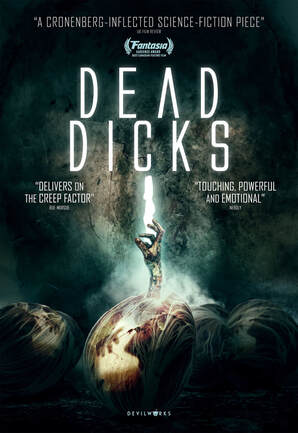
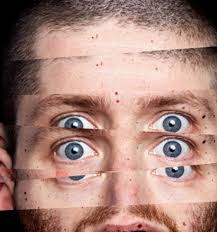
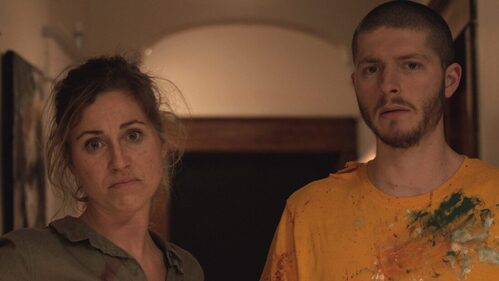
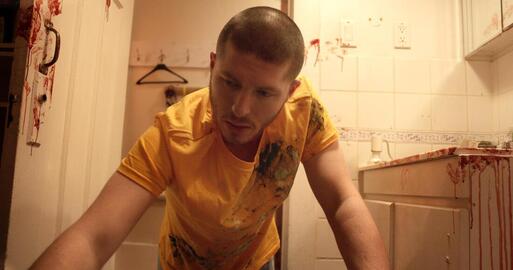
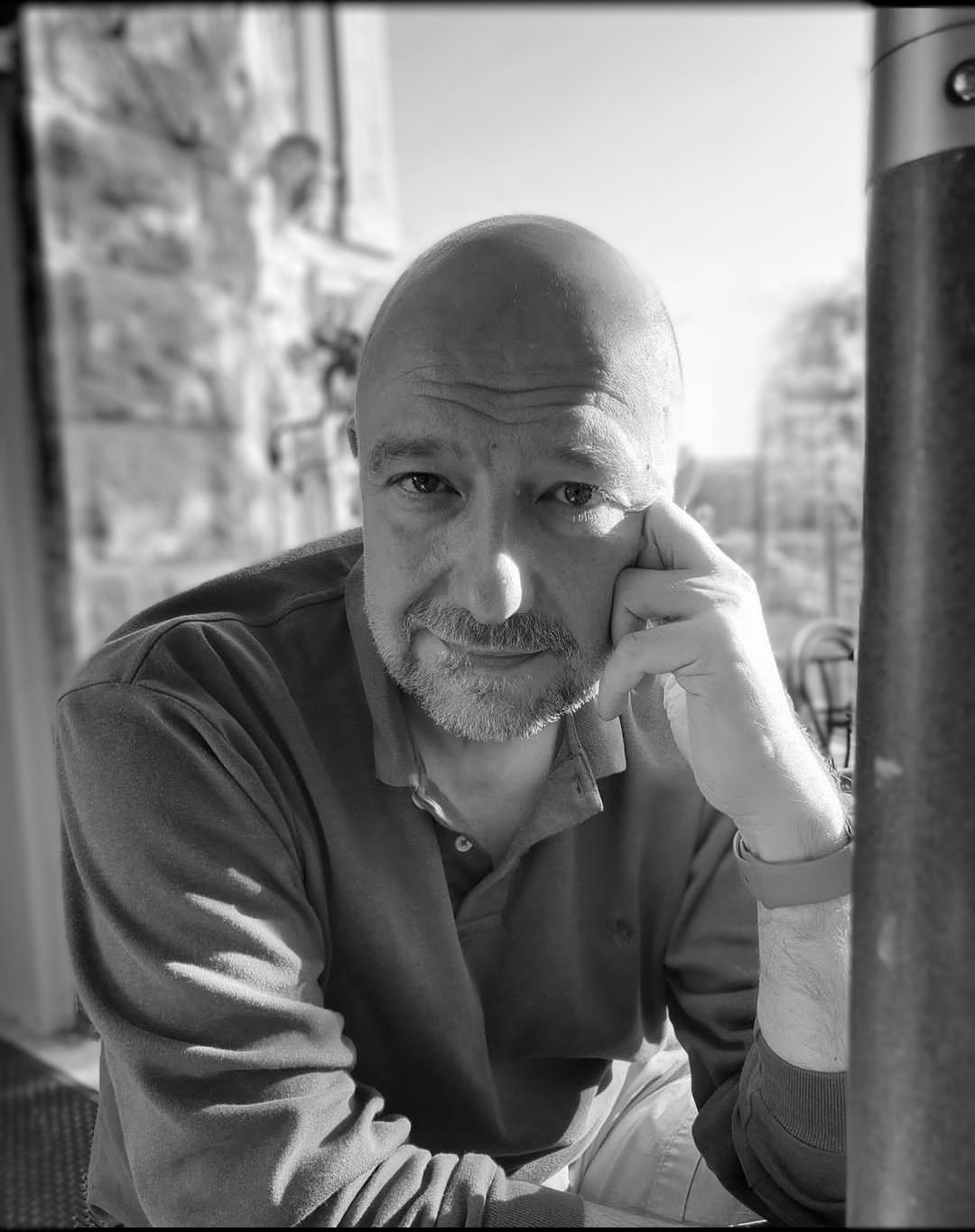
 RSS Feed
RSS Feed